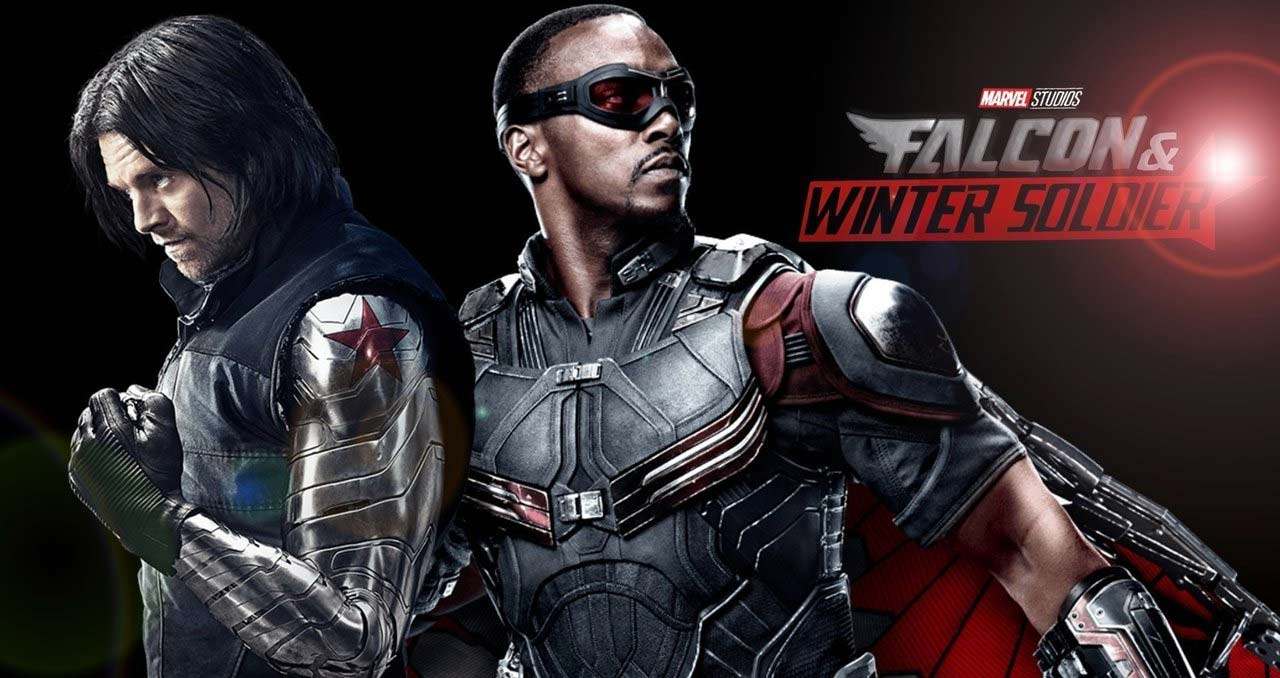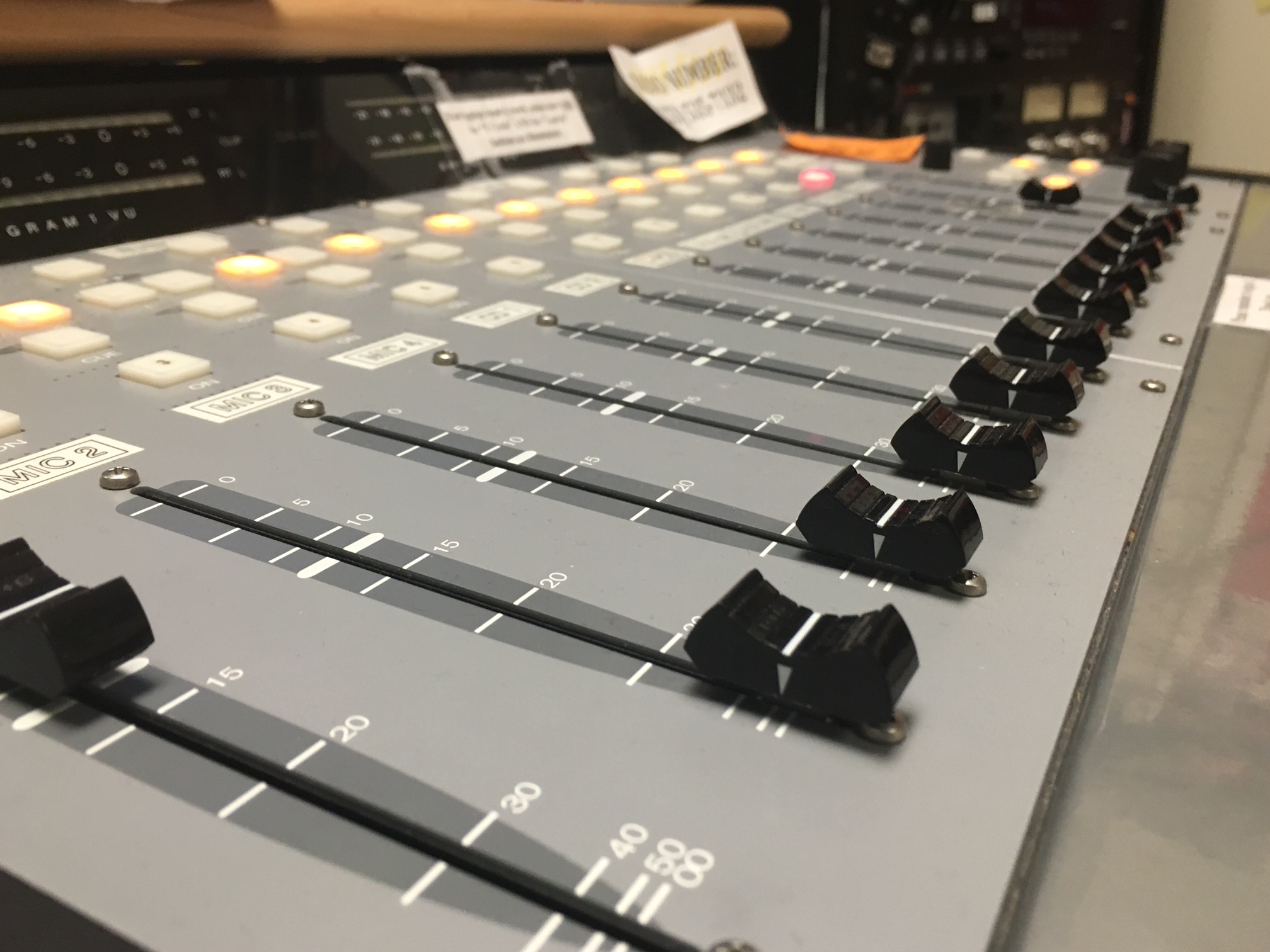Ben Leschensky
Reporter
Caitlin Klütz
Reporter
Warning: Spoilers Ahead for Falcon and the Winter Soldier
“I’m a Black man carrying the stars and stripes. What don’t I understand? Every time I pick this thing up, I know there are millions of people out there who are going to hate me for it. Even now, here, I feel it. The stares, the judgement, and there’s nothing I can do to change it, yet I’m still here. No super serum, no blonde hair or blue eyes. The only power I have is that I believe we can do better. We can’t demand that people step up if we don’t meet them halfway. You control the banks. Shit, you can move borders. You can knock down a forest with an email; you can move a million people with a phone call. The question is, who’s in the room with you when you’re making those decisions? Is it the people you’re going to impact? Or is it just more people like you?” […] You’ve gotta do better, Senator. […] Look, you people have just as much power as an insane God or a misguided teenager. The question you have to ask yourself is, ‘How are you going to use it?'” -Sam Wilson, Episode 6
How do you use the power given to you? This question guides Marvel’s most recent Disney+ show, The Falcon and the Winter Soldier (FATWS). Sam Wilson/Falcon’s (Anthony Mackie) quote marks a poignant moment in the series, and highlights many of the themes from the 6-episode series: race, historical power, reparations, and the benefits/dangers of symbolic heroism. While it attempts to tie together all of these themes (to mild success), the show really shines through by welcoming greater representation and progressivism of its heroes.
The show follows Wilson and Bucky Barnes/The Winter Soldier (Sebasitan Stan) teaming up to stop the super-soldier serum enhanced Flag Smashers – a group of refugees impacted by the Blip – who cause mayhem throughout the series. The duo, who join forces with Sharon Carter (Emily VanCamp) and Civil War baddie Helmut Zemo (Daniel Brühl), treat audiences to plenty of cinematic action sequences, cheesy one-liners, and strong character development. Compared to the intrigue and emotional depth of Wandavision, however, FATWS felt more like the cookie-cutter version of Marvel movies audiences are used to.
One of the strongest elements of the show is Wilson’s struggle with becoming the first Black Captain America – a timely and important step for the MCU. The show introduces Isaiah Bradley (Carl Lumbly), a Black man who reveals he was given the super-soldier serum back in the Korean War but was then experimented on and imprisoned. The scenes between Wilson and Bradley are the rawest moments of the series, and in Episode 5, titled “Truth,” Bradley says that a Black man can’t and shouldn’t be Captain America. Wilson ultimately embraces the mantle of being Captain America in Episode 6, putting aside Bradley’s fears and distrust in America and ushering in a new era.
The show also explores Bucky facing the skeletons of his Winter Soldier days, and coming to grips with his new life as Wilson’s “partner.” The bromance between the two characters is an enjoyable thread throughout the series, and their back-and-forth banter provides nice humor breaks. Audiences are also treated to learning more about Sam’s family, including his sister Sarah Wilson (Adepero Oduye). Their brother-sister dynamic adds emotional depth to the show, and the scenes of them fixing up the family fishing boat in Louisiana offers nice breaks from the action scenes.
Despite the successes of the series, the show’s antagonists fall flat. Karli Morgenthau (Erin Kellyman), the leader of the anti-nationalist Flag Smashers, is meant to be the sympathetic villain of the show. However, her character seems to contradict herself more than a few times. While she doesn’t believe in borders and wants to help the world, she shares with Wilson and her Flag Smasher comrades that she would do whatever it takes to get her message across, even if it means sacrificing others’ lives. While the idea of a sympathetic villain isn’t unheard of for Marvel, it seems that the show was trying to pander a different perspective to audiences. Though, Morganthau seemed to be just a gateway for Marvel to show Wilson as an understanding hero who would listen to both sides of a story, instead of just simply defeating an evil villain.
Throughout the show, Morganthau evades the mysterious “Power Broker” after stealing 20 vials of the super-soldier serum from them. When Sharon Carter is revealed to have been the Power Broker the entire time, audiences shouldn’t be too surprised – it was fairly obvious from the get-go. Alluding dialogue, suspenseful/dark music, and obvious foreshadowing in each of her appearances make the final reveal underwhelming. Despite her thoughts about anti-heroism and symbolism for super-soldiers, her villainous journey seems out of sorts and clunky. Instead of a full character arc, we simply get snippets of villainy from Carter rather than seeing her motivation behind creating the super-soldier serum or exposing government secrets. Fortunately, audiences are treated to excellent character arcs for Wilson, Barnes, and even Zemo.
After the series wrapped up, news broke that Malcom Spellman – one of the FATWS writers – was in talks to create a Captain America 4 movie, although no actors or directors have been officially announced. It remains to be seen if Anthony Mackie would reprise his role as Captain America, but it wouldn’t be surprising to see him and his fellow actors join the theatrical project.
For more Marvel, fans can watch Loki on Disney+ weekly starting Wednesday, June 9.





















